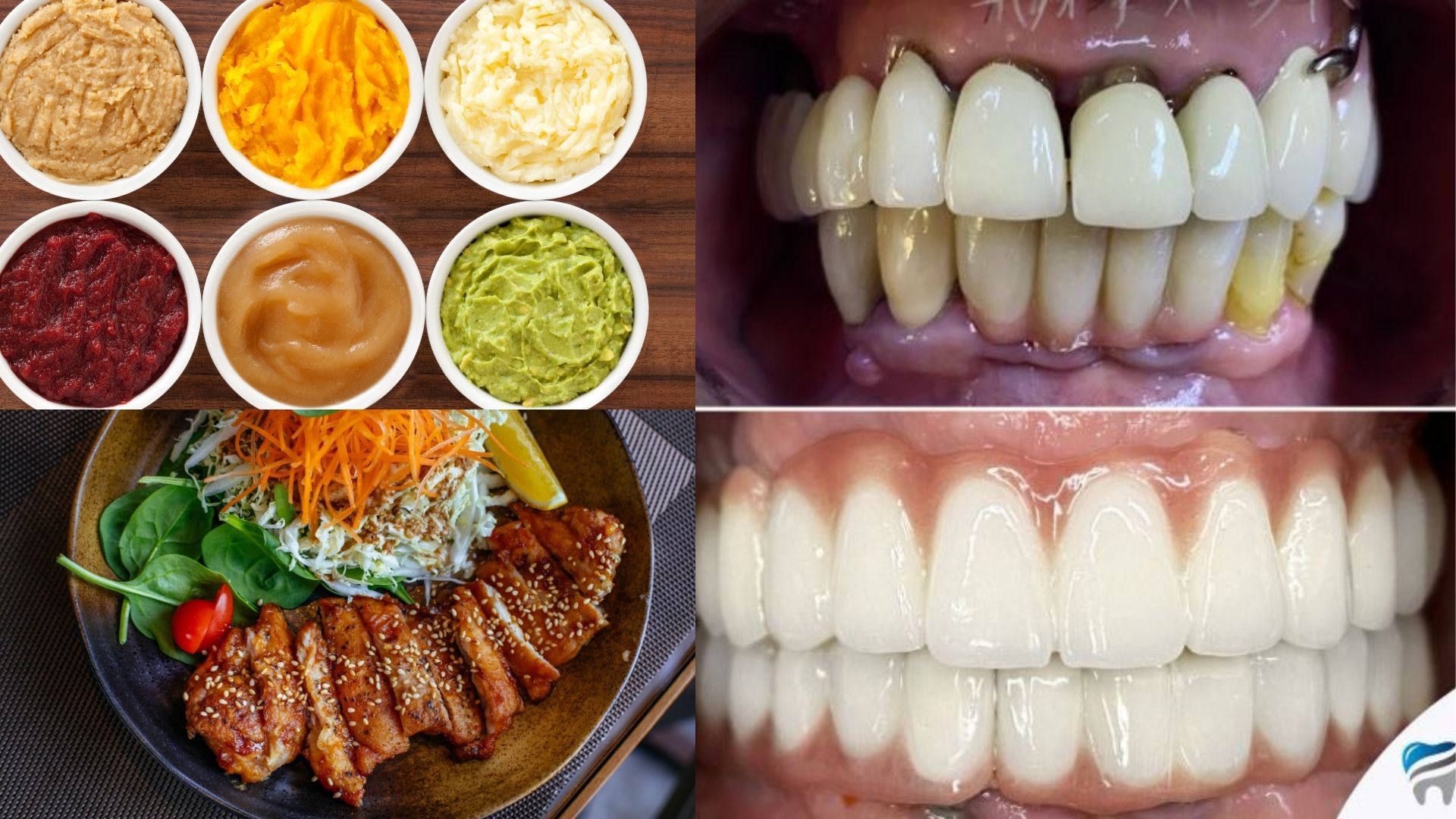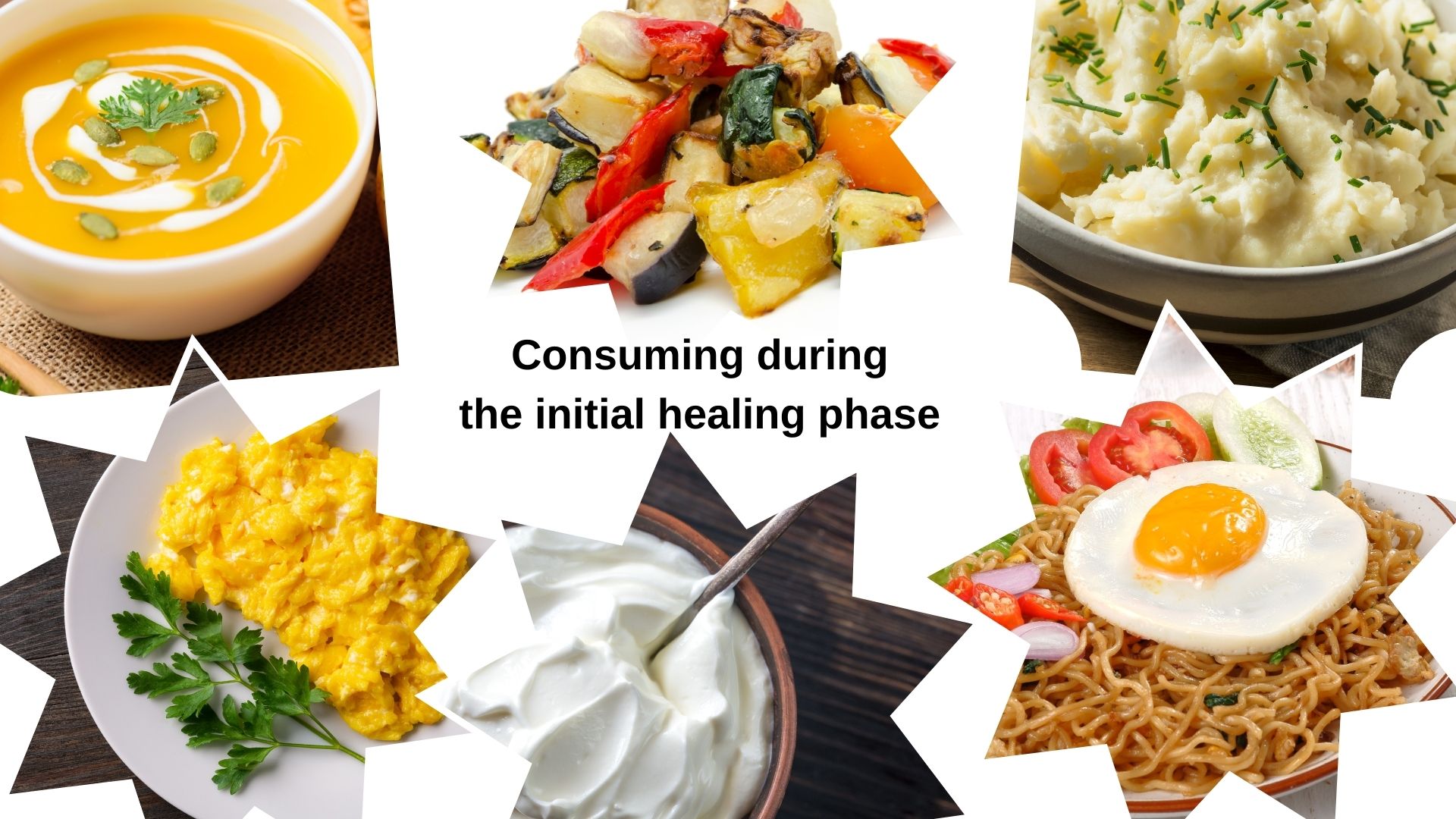What to eat after all on 6 dental implant surgery?

After all on 6 dental implants surgery, it is important to follow the recommended dietary guidelines to ensure that the healing is as desired and to prevent or minimize any discomfort or complications. Here is how we should eat after all on 6 dental implant surgery, which is a serious dental treatment, and what we should pay attention to during eating and drinking.
Foods
During the first phase of post-operative recovery, it is very important to stick to a soft food diet to avoid putting excessive pressure on the implants and surgical site. Some examples of soft foods are:

- Soups (pureed or blended)
- Mashed potatoes or sweet potatoes
- Cooked vegetables (soft and well-cooked)
- Scrambled eggs or omelets
- Yogurt or soft cheeses
- Cooked or canned fruits (without skin or seeds)
- Smoothies or protein shakes
- Oatmeal or porridge
- Soft cooked pasta or noodles
Nutrient-rich Foods
To support the healing process, you should try to consume foods with high nutritional value. It is useful to include foods from different food groups in your diet, such as:
- Lean proteins: Soft-cooked chicken, fish, tofu, lentils, or beans.
- Fruits and vegetables: Opt for cooked or canned varieties that are easy to chew.
- Whole grains: Soft cooked rice, quinoa, or couscous.
- Healthy fats: Avocados, nut butter, olive oil, or soft-cooked eggs.
Cold Foods and Beverages
Consuming cold foods and drinks can help relieve swelling and provide relief:
- Cold water or ice chips
- Smoothies or milkshakes (avoid using a straw)
- Cold yogurt or chilled soft fruits
Avoid Hard, Crunchy, or Chewy Foods
Foods that may strain and put pressure on the implants or cause irritation at the surgical site should be avoided. These foods include:
- Hard candies or nuts
- Chewy or sticky foods like caramel or taffy
- Crunchy foods like chips or popcorn
- Tough meats or jerky
- Spicy or acidic foods that may irritate the gums
Hydration
Drinking plenty of fluids to avoid dehydration will contribute to healing, but it would be appropriate to avoid using straws in the first stage of healing to prevent blood clots from forming or causing complications.
Gradual Transition to Solid Foods
In the later stages of your recovery and when you are healing as desired, it is possible to gradually add more solid foods to your diet if your dentist deems it appropriate. Start with a softer version of the food and gradually you can consume the normal version.
It is important that you follow the special dietary instructions given by your dentist to speed up recovery, and you may need to follow additional recommendations specific to your individual situation. Maintain good oral and dental hygiene by gently brushing your teeth at least twice a day and rinsing your mouth with mouthwash.
The healing process may vary for each individual, so you may need to make changes and adjustments to your diet according to the developing situation, but do not forget to inform your dentist about any changes you make. Do not forget to consult your dentist if you have any concerns or questions about your post-operative diet.
If you have any questions you do not find here, please contact us.
